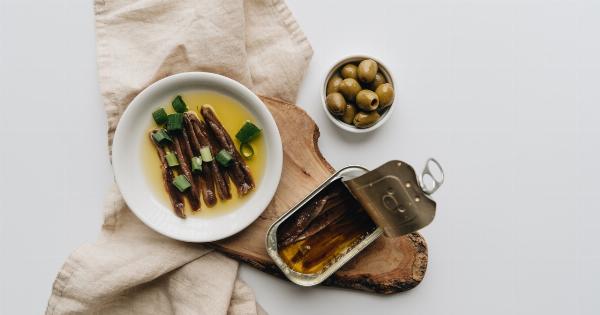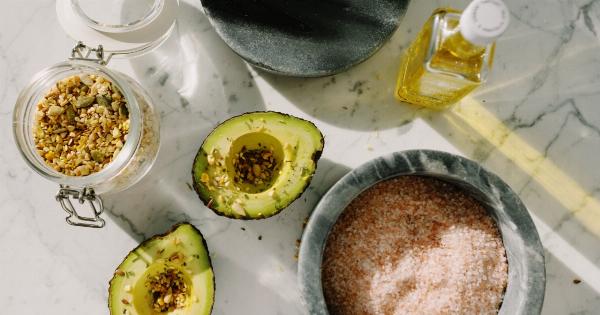Olives have been an important part of Mediterranean cuisine for thousands of years. They are used in a variety of dishes including salads, pizza, pasta, soups, sandwiches and many more.
Olives are a great source of healthy monounsaturated fats and also contain vitamins, minerals and antioxidants that are essential for good health. However, some olives can be harmful if consumed in excess or if consumed by people with certain health conditions. In this article, we will discuss the top harmful olives you need to know about.
1. Canned Olives
Canned olives are usually high in sodium, which can increase blood pressure and cause other health problems like heart disease, stroke and kidney disease.
Canned olives are also often treated with chemicals like lye or brine to preserve them, which can be harmful if consumed in excess. Additionally, canned olives may contain additives like artificial colors, flavors and preservatives which can be harmful to health.
2. Stuffed Olives
Stuffed olives are olives that have been stuffed with other ingredients like cheese, garlic, peppers or almonds. While these olives can be delicious, they are often high in calories, fat and sodium.
Stuffed olives are also often made with processed cheese or meats which can be harmful to health if consumed in excess.
3. Black Olives
Black olives are often treated with ferrous gluconate, which is an iron salt used to enhance their color. While this mineral is essential for health, consuming too much of it can be harmful and lead to iron toxicity.
This can cause symptoms like abdominal pain, nausea, vomiting, diarrhea, and even death in extreme cases.
4. Green Olives
Green olives are often treated with natamycin, which is a chemical used to prevent mold growth.
While this chemical is considered safe, consuming too much of it can be harmful and cause gastrointestinal issues like nausea, vomiting, diarrhea or stomach cramps. Some people may also have an allergic reaction to this chemical, which can cause skin rashes, hives, and even anaphylaxis in severe cases.
5. Pitted Olives
Pitted olives are olives that have had their pits removed. While this may seem like a good thing, pitted olives are often treated with chemicals like calcium chloride to prevent spoilage.
Consuming too much of this chemical can be harmful and cause gastrointestinal issues like nausea, vomiting, diarrhea or stomach cramps. Additionally, pitted olives may be prone to contamination with bacteria like Clostridium botulinum, which can cause botulism in rare cases.
6. Kalamata Olives
Kalamata olives are a type of Greek olive that are known for their distinctive taste and flavor. These olives are often treated with ferrous gluconate to enhance their color and prevent spoilage.
As we discussed earlier, consuming too much of this mineral can be harmful and lead to iron toxicity.
7. Organic Olives
Organic olives are usually grown without the use of synthetic pesticides or fertilizers. While this may sound good for health, organic olives may be more prone to contamination with pathogens like Salmonella or E. coli.
Additionally, organic olives may be more expensive than conventionally grown ones, which may be a problem for people on a tight budget.
8. Spanish Table Olives
Spanish table olives are a type of olives that are often cured with salt. While they can be a healthy snack, consuming too much of them can be harmful and lead to high blood pressure or other health problems.
Spanish table olives are also often treated with potassium sorbate, which is a preservative that can be harmful if consumed in excess.
9. Creta Olives
Creta olives are a type of Greek olive that are known for their large size and meaty texture.
While they are popular in Greece and many other Mediterranean countries, consuming too much of them can be harmful and lead to digestive issues like bloating, gas, and constipation. Creta olives are also often treated with sodium hydroxide, which is a strong alkaline chemical that can cause burns or skin irritation if handled improperly.
10. Oil-Cured Olives
Oil-cured olives are a type of olives that are cured with salt and then soaked in oil to enhance their flavor and texture. While they can be delicious, consuming too much of them can be harmful and lead to weight gain or other health problems.
Oil-cured olives are also often higher in calories and fat than other types of olives, which may be a problem for people on a low-fat or low-calorie diet.
Conclusion
Olives are a healthy and delicious food that can be a great addition to any diet. However, not all olives are created equal, and some can be harmful if consumed in excess or by people with certain health conditions.
When buying olives, it is important to read the label and choose olives that are low in sodium, preservatives and additives. It is also important to consume olives in moderation and as part of a balanced diet to gain maximum benefit from their health benefits.





























